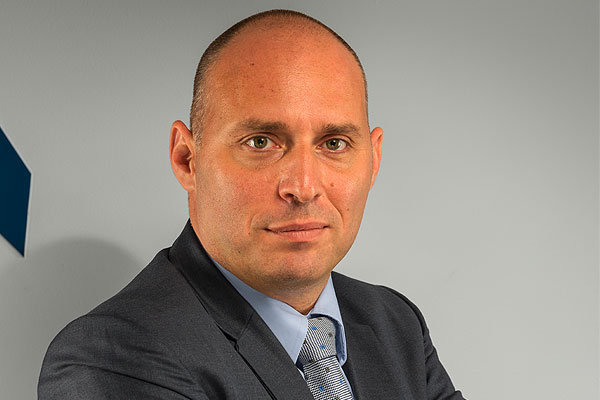
Claudio Lietaert, Partner and Managing Director of Global Jet Centre.
While medical tourism has many components such as specialist hospitals and doctors, high-level nursing care, resort-type accommodations, coordinated hospital transfers, one crucial component is often overlooked or taken for granted: air travel.
Medical tourism conjures up images of rich clients arriving in style from across continents into topnotch healthcare facilities and flying back fully restored to health. As the world shifts into high gear on globalization, medical tourism scales unprecedented growth. Intercontinental medical treatments are becoming more popular than ever before.
Many cities across the world have already repositioned themselves as medical tourism destinations. Several countries are developing programs to build their own dedicated healthcare hubs for international patients.
While medical tourism has many components such as specialist hospitals and doctors, high-level nursing care, resort-type accommodations, coordinated hospital transfers, one crucial component is often overlooked or taken for granted: air travel.
For emergencies requiring medical evacuation or what the industry refers to as medevac, clients understand their need for an air ambulance, a special medically-equipped aircraft with onboard medical team. Medical tourism, on the other hand, is typically planned in advance and has a wider scope: pre-scheduled surgeries, cosmetic enhancements, dental procedures, organ transplants, reproduction, and wellness & specialized therapies. As such, most medical tourists think of commercial flights as the viable option. But the use of chartered flights for medical tourism is clearly on the rise.
Air charter catching up with commercial flights
One of the region’s prime movers of clients via chartered flights, Dubai-based Global Jet Centre reports first-hand knowledge on the increasing demand for air charter service by medical travelers. Claudio Lietaert, Managing Partner at Global Jet Centre said that although the bulk of medical-related flight bookings are medevacs requiring air ambulance, more and more medical tourists are booking private jets. He said, “We have done hundreds of successful medevacs over the years but lately, we have observed an increasing number of bookings for medical tourism. The number is not yet very large, but the growth is significant and the trend is clear.”
Mr. Lietaert continued, “The majority of medical tourists still consider commercial flights as the preferred mode of travel. That is, of course, until they realize that flying commercially poses the risk of nullifying all the benefits received from their medical treatment abroad. The stress and discomfort associated with commercial flights can take a toll on the patient’s health. On very unfortunate occasions, the consequences can be very tragic.”
This does not mean, however, that all medical care travels require private jet charter. Global Jet Centre acknowledges the distinction between emergency dispatches and relatively safe medical flights. When booking medical related flights, they clarify immediately whether clients are requesting for an air ambulance or going for a relatively safe medical trip. A request for an air ambulance means immediate dispatch and takes top priority. Most medical care related flights are not emergency dispatches, yet they still require medically-oriented arrangements, which commercial flights cannot be expected to provide.
Air charter wins the argument
A typical case could be a frail patient scheduled for a surgical procedure abroad who opts for a commercial flight to cut cost. However, little does he know that the stress and fatigue that come with airport procedures, the non-conducive cabin environment, and the lack of medical support around can cause anxieties resulting to a worsened health condition even before arriving at his destination. The reverse can be true. After receiving treatment and starting on a good recovery path, the patient might suffer a seizure or some sort of an emergency on a return flight.
Claudio Lietaert reiterated, “It’s hard to rule out post-operative emergencies happening on a return trip. There have been many sad reports of patients adversely affected by flying commercially. Which is why we encourage medical tourists to take private jets equipped to handle unforeseen emergencies. The Operator’s medical team onboard the air ambulance can help manage pain, discomfort and address emergencies up in the air.”
The need for air charter flights is more imperative for cardiac patients or those receiving ultra-sensitive treatments like radiation and chemotherapy. Taking commercial flights means exposing the patient’s already weak immune system to potential contaminants concentration in an enclosed space filled with hundreds of people. For organ transplants, the window of time from harvesting organs from donors to doing the transplant procedure is very small. Patients have no time to waste and no room for flight delays.
Even in cases of relatively safe and non-critical medical care like cosmetic procedures, traveling on private air charter is the only way clients can keep their post procedure looks to themselves. Otherwise, clients will have to delay their flight home by weeks or months lest they expose themselves to curious stares aboard commercial airliners. Generally, nothing compares to flying home as soon as possible and recovering in the comfort of home where family support is available.
The future is bright for air charter
While the cost factor of a private air charter may deter budget conscious medical travelers, many rich people don’t blink at all. These are the ones who think of medical tourism as part of their lifestyle.
High net worth clients travel in style for their holidays and they maintain the same level of comfort for their medical travels. Others combine medical tourism with family holidays to fully experience its full meaning, that is, healthcare treatment combined with tourism leisure. Obviously, destinations that have both advanced specialist hospitals and touristic landmarks have the edge in attracting these types of clients.
Tatiana is the news coordinator for TravelDailyNews Media Network (traveldailynews.gr, traveldailynews.com and traveldailynews.asia). Her role includes monitoring the hundreds of news sources of TravelDailyNews Media Network and skimming the most important according to our strategy.
She holds a Bachelor's degree in Communication & Mass Media from Panteion University of Political & Social Studies of Athens and she has been editor and editor-in-chief in various economic magazines and newspapers.






























































































































































































